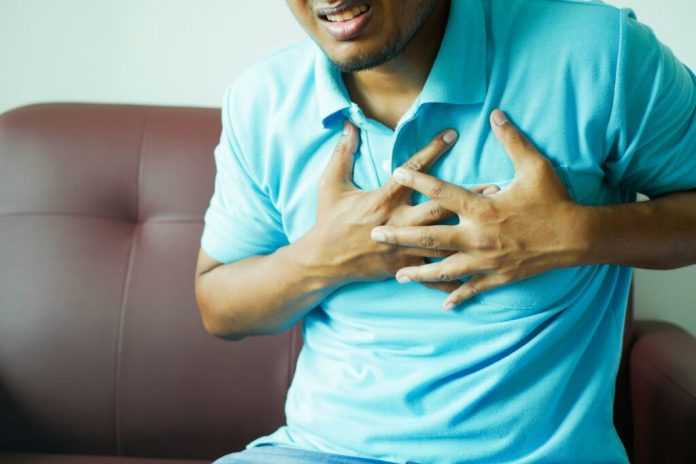Introduction
Experiencing discomfort or pressure in chest after eating can be alarming. While it might be something as simple as indigestion, this sensation may also point to more serious health issues that require medical attention. Understanding the causes, symptoms, and treatment options can help you take timely action and prevent complications. In this article, we break down everything you need to know in simple words, so you can feel more confident and informed about your health. ER OF COPPELL is here to guide you every step of the way, whether it’s mild discomfort or something that needs urgent care.
For more information visit https://businessfig.com/
What Is Chest Pressure and Why It Happens After Eating
Chest pressure refers to a feeling of tightness, fullness, or squeezing in the chest area. When this happens right after a meal, it can be linked to the digestive system or the heart. Many people ignore this symptom thinking it’s normal, but it’s essential to understand the underlying causes to avoid long-term issues.
1. Acid Reflux (GERD)
How It Affects You:
When stomach acid flows back into the esophagus after eating, it can irritate the lining and cause a burning sensation or pressure in the chest. This is commonly known as acid reflux or GERD (Gastroesophageal Reflux Disease).
Symptoms:
- Burning chest pain (heartburn)
- Sour taste in the mouth
- Difficulty swallowing
- Burping and bloating
Risk Factors:
- Spicy or acidic foods
- Overeating
- Lying down immediately after meals
2. Gas and Bloating
Gas build-up in the stomach or intestines can push against the diaphragm and create chest pressure.
Common Causes:
- Carbonated drinks
- Eating too fast
- High-fiber or greasy foods
Signs:
- Abdominal discomfort
- Frequent burping
- Feeling overly full
3. Esophageal Spasms
These are sudden, involuntary contractions in the esophagus, which can cause intense chest pressure after eating.
Symptoms:
- Sharp chest pain
- Difficulty swallowing
- Pain that may mimic heart problems
4. Hiatal Hernia
A hiatal hernia occurs when part of the stomach pushes through the diaphragm into the chest cavity.
Signs:
- Chest pressure
- Acid reflux
- Shortness of breath
- Nausea
This condition may require surgical intervention if it becomes severe.
5. Food Allergies or Intolerances
Some individuals experience chest pressure due to allergic reactions or food intolerances.
Common Triggers:
- Dairy
- Gluten
- Nuts
Additional Symptoms:
- Rash
- Swelling
- Breathing difficulty (in severe cases)
6. Heart-Related Issues
Not all chest pressure after eating is digestive. Sometimes, it can indicate underlying heart problems, especially if you have a history of cardiac conditions.
Warning Signs:
- Pain radiating to the arm or jaw
- Dizziness
- Sweating
- Shortness of breath
Always seek immediate help at ER OF COPPELL if heart issues are suspected.
7. Overeating or Eating Too Quickly
Eating too much or too fast can overwhelm your digestive system, causing bloating and pressure.
Prevention Tips:
- Eat slowly and chew thoroughly
- Eat smaller portions
- Avoid lying down after meals
When to Seek Emergency Care
You should visit ER OF COPPELL immediately if you experience:
- Persistent or severe chest pain
- Pressure that spreads to the neck, jaw, or arm
- Difficulty breathing
- Nausea and sweating
- Loss of consciousness
These could be signs of a heart attack or other critical conditions.
How ER OF COPPELL Can Help
ER OF COPPELL offers 24/7 medical services with minimal wait times. Whether your chest pressure is due to a digestive issue or a heart condition, our experienced team of physicians can diagnose and treat the problem efficiently.
Our Services Include:
- On-site diagnostics (X-rays, EKGs, lab work)
- Emergency and urgent care
- Gastrointestinal and cardiac evaluations
- Pediatric and adult care
Our goal is to ensure that you receive prompt and personalized treatment in a comfortable, patient-friendly environment.
Prevention Tips: What You Can Do
- Avoid large, fatty meals
- Stay upright for at least 2 hours after eating
- Maintain a healthy weight
- Identify and avoid food triggers
- Manage stress through breathing exercises and physical activity
Frequently Asked Questions (FAQs)
Q1: Is chest pressure after eating always serious?
A: Not always, but it shouldn’t be ignored. It could be a sign of acid reflux or something more severe like a heart issue.
Q2: How can I tell if it’s heartburn or a heart attack?
A: Heartburn typically causes burning pain and a sour taste. Heart attacks may involve pain spreading to the arms or jaw, sweating, and breathlessness. When in doubt, visit ER OF COPPELL immediately.
Q3: Can children experience chest pressure after eating?
A: Yes, children can experience reflux or allergic reactions. It’s best to consult a pediatrician.
Q4: What tests might be done at ER OF COPPELL?
A: You may undergo EKG, chest X-rays, blood tests, or an ultrasound depending on your symptoms.
Q5: What foods should I avoid?
A: Spicy, fatty, or carbonated foods, as well as common allergens like dairy and gluten.
For more blogs visit https://fortunetelleroracle.com/health-care-products/top-7-reasons-why-er-of-coppell-is-the-best-er-near-me–2024-guide-1044137
For more blogs visit https://ekonty.com/blogs/204680/Top-10-Reasons-Why-ER-OF-COPPELL-Is-the-Best
For more blogs visit https://insidetechie.blog/7-crucial-things-er-of-coppell-searching-for-an-emergency-room-near-me/








